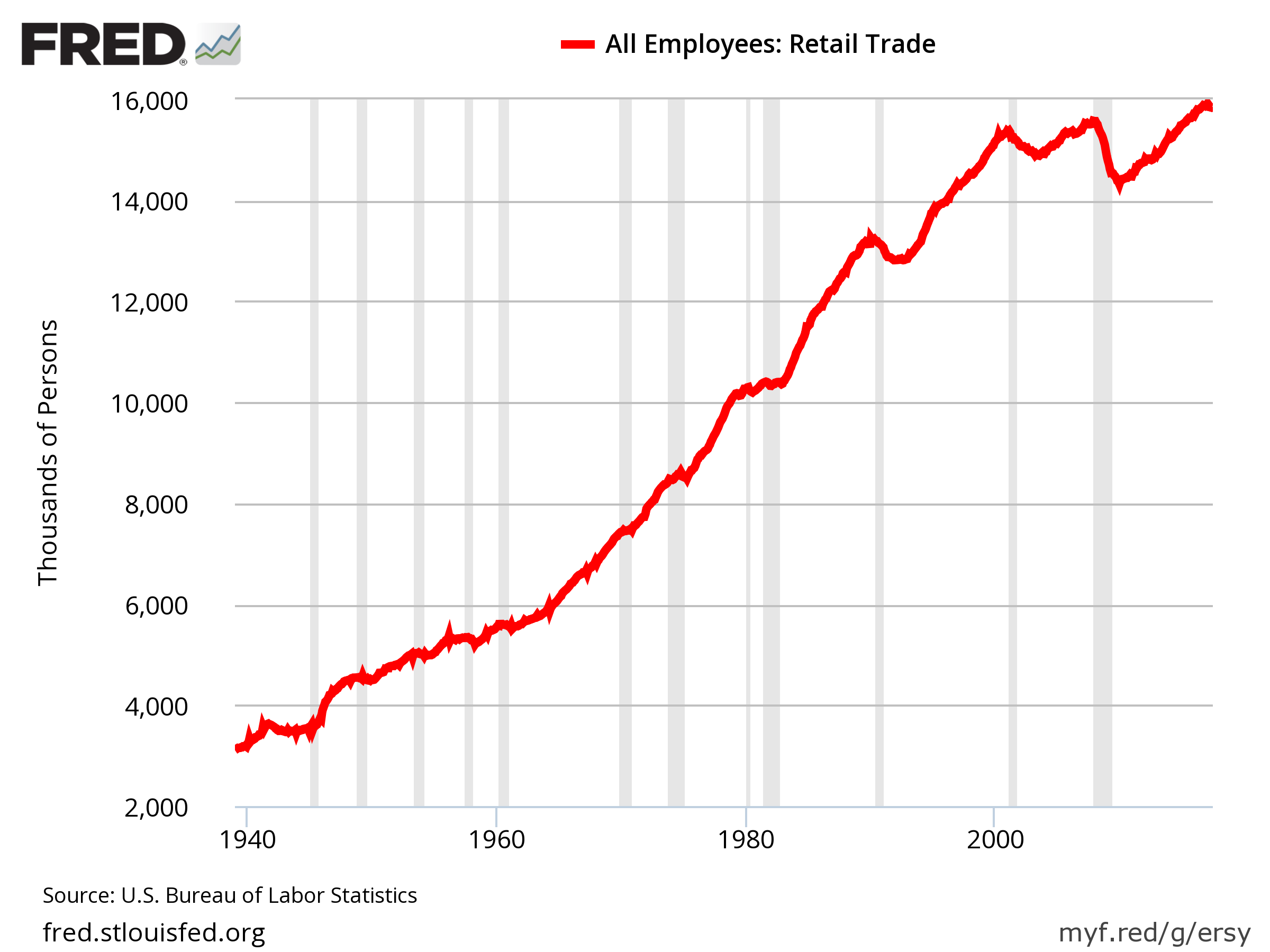Self-checkout machines were only the beginning of replacing human workers with machines at retail stores.
The U.S. economy has lost about 71,000 retail jobs since the beginning of the year as routine tasks become automated and thousands of stores close because of competition from e-commerce companies like Amazon. Nearly 16 million people, or 11 percent of non-farm U.S. jobs, are in the retail industry, making it bigger than the factory sector, The Wall Street Journal reported, citing data from the Bureau of Labor Statistics.
.png.aspx?width=600&height=450)
One Wal-Mart worker profiled by the newspaper learned last year that her $13-an-hour job of counting cash would be replaced by a machine. The Cash360 machine would count eight bills a second, 3,000 coins a minute and digitally deposit money at the bank to earn interest faster. The worker, a 10-year Wal-Mart veteran, was reassigned to a store greeter job for the same pay.
“The role of service and customer-facing associates will always be there,” Judith McKenna, Wal-Mart’s U.S. chief operating officer, told the WSJ. But “there are interesting developments in technology that mean those roles shift and change over time.”
Home Depot Inc. has self-checkouts in most stores and is testing scanner guns that shoppers can use to buy bulky items like lumber and drywall.
“We want to simplify the stores so that we can free up our associates…so they can focus on selling,” Carol Tomé, Home Depot’s chief financial officer, said to the WSJ.
Between 6 million and 7.5 million retail industry jobs are vulnerable to automation within 10 years, according to a May study by Cornerstone Capital Group.
The report forecast that the jobs of as many as 47 percent of the 16 million Americans currently working in retail could be lost to e-commerce and automation. In-store roles most vulnerable to being replaced by machine include cashiers and order clerks while salespeople and freight handlers are slightly less exposed.
Jobs that require a human touch like store greeters would be more insulated from direct replacement by robots or apps, but rising wage costs could make those jobs too expensive for stores to justify, Fortune magazine reported.
© 2026 Newsmax Finance. All rights reserved.